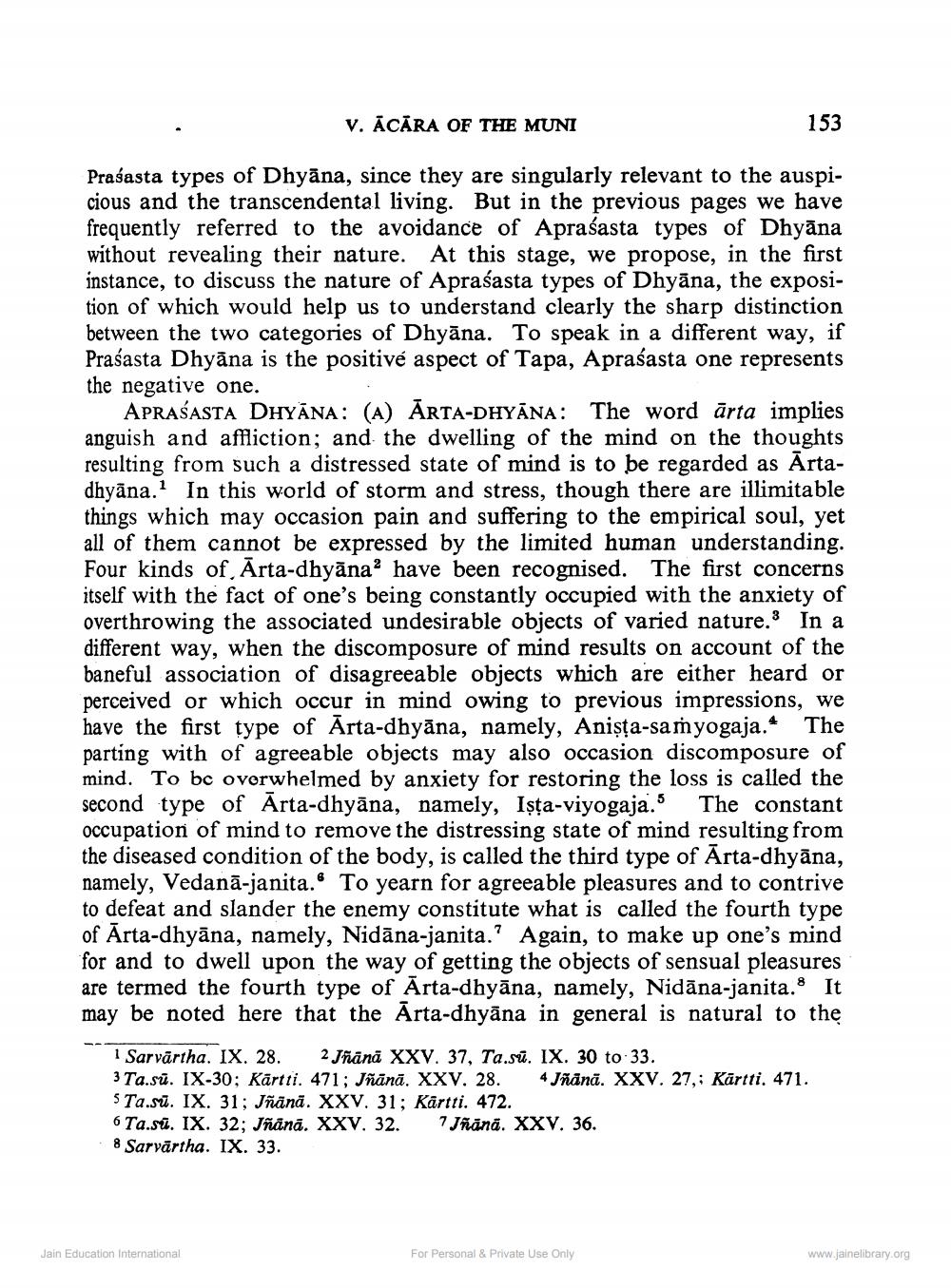________________
V. ĀCĀRA OF THE MUNI
153
Prasasta types of Dhyāna, since they are singularly relevant to the auspicious and the transcendental living. But in the previous pages we have frequently referred to the avoidance of Aprašasta types of Dhyāna without revealing their nature. At this stage, we propose, in the first instance, to discuss the nature of Apraśasta types of Dhyāna, the exposition of which would help us to understand clearly the sharp distinction between the two categories of Dhyāna. To speak in a different way, if Prasasta Dhyana is the positive aspect of Tapa, Aprašasta one represents the negative one.
APRAŠASTA DHYANA: (A) ARTA-DHYANA: The word ārta implies anguish and affliction; and the dwelling of the mind on the thoughts resulting from such a distressed state of mind is to be regarded as Ārtadhyāna. In this world of storm and stress, though there are illimitable things which may occasion pain and suffering to the empirical soul, yet all of them cannot be expressed by the limited human understanding. Four kinds of Arta-dhyāna? have been recognised. The first concerns itself with the fact of one's being constantly occupied with the anxiety of overthrowing the associated undesirable objects of varied nature. In a different way, when the discomposure of mind results on account of the baneful association of disagreeable objects which are either heard or perceived or which occur in mind owing to previous impressions, we have the first type of Arta-dhyāna, namely, Anista-samyogaja. The parting with of agreeable objects may also occasion discomposure of mind. To be overwhelmed by anxiety for restoring the loss is called the second type of Arta-dhyāna, namely, Ista-viyogaja. The constant occupation of mind to remove the distressing state of mind resulting from the diseased condition of the body, is called the third type of Arta-dhyāna, namely, Vedanā-janita. To yearn for agreeable pleasures and to contrive to defeat and slander the enemy constitute what is called the fourth type of Ārta-dhyāna, namely, Nidāna-janita.? Again, to make up one's mind for and to dwell upon the way of getting the objects of sensual pleasures are termed the fourth type of Ārta-dhyāna, namely, Nidāna-janita.8 It may be noted here that the Ārta-dhyāna in general is natural to the
1 Sarvârtha. IX. 28. 2 Jñână XXV. 37, Ta.sū. IX. 30 to 33. 3 Ta.sū. IX-30; Kartti. 471; Jñānā. XXV. 28. Jñanā. XXV. 27,; Kārtti. 471. 5 Ta.su. IX. 31; Jņānā. XXV. 31; Kartti. 472. 6 Ta.su. IX. 32; Jñanā. XXV. 32. 7Iñānā. XXV. 36. 8 Sarvārtha. IX. 33.
Jain Education International
For Personal & Private Use Only
www.jainelibrary.org




